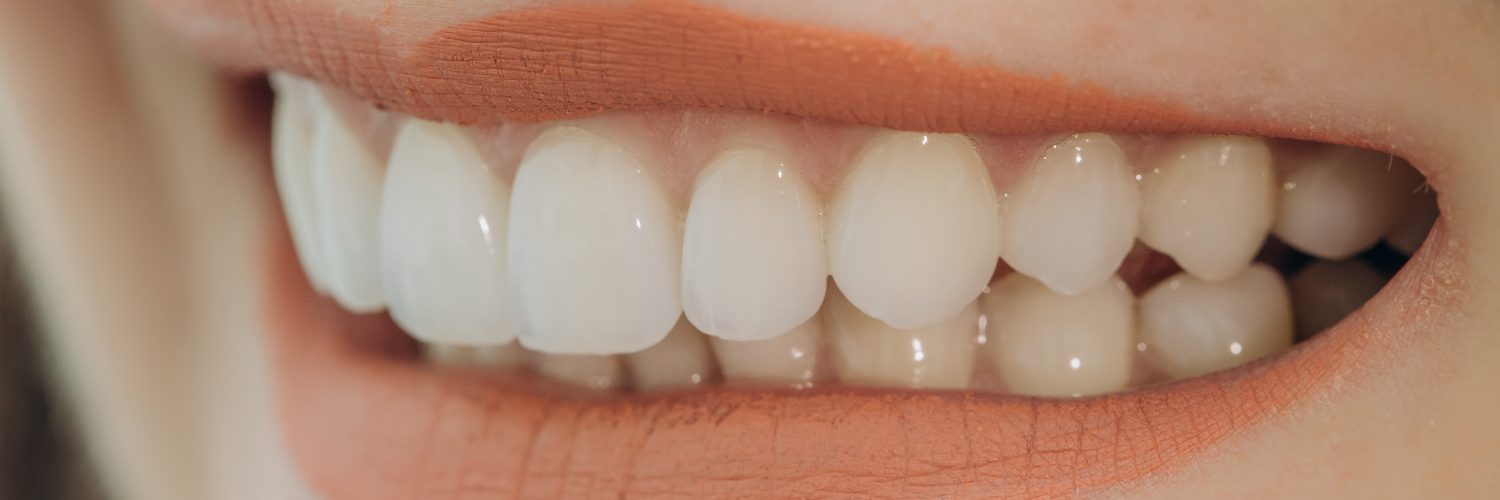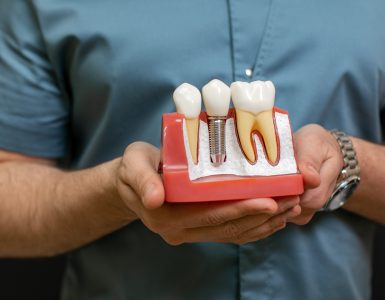Increasingly people are looking to improve the look of their teeth and improve their smile. Many concerns such as whiteness, staining and discolouration, chipped, cracked, worn or uneven teeth can be treated by using dental veneers.
What are dental veneers?
Dental veneers are thin, tooth-coloured shells that are custom-made, attached to the front of your teeth and cover the entire surface of the tooth, providing a natural look that masks any areas of concern. There are two main types of veneer – composite and porcelain.
Composite veneers
Composite veneers are made from a tooth-coloured composite resin material, similar to the material used for white fillings and cosmetic bonding, that is applied directly to the tooth and then shaped freehand by the dentist. The enamel of your tooth is prepared and the resin is then applied in thin layers and hardened using high-intensity light. Once shaped and hardened, the veneer is then polished. Coming in a range of colours, the resin is able to blend in naturally with your teeth, or be matched to a colour of your choice. The whole process can be completed in one visit to your dentist. Composite veneers typically last 4-8 years.
Porcelain veneers
Porcelain has translucent properties and reflects the light in a similar way to natural teeth making porcelain veneers a great option for a natural looking smile. As porcelain veneers are custom made, you will need more than one visit to your dentist. On your first visit, your dentist will prepare your teeth by removing a thin layer of the enamel and will take an impression of them to create a mould for the laboratory to individually create each veneer to blend seamlessly with your natural teeth. You will be fitted with temporary veneers while these are being prepared. At your next visit, the temporary veneers will be removed and your new porcelain veneers are fitted and bonded to your teeth. Well looked after porcelain veneers should last 10-15 years.
Which type of veneer should I choose?
Each option has its own advantages, which you should consider before making your choice.
Composite veneers
- Much quicker to apply. Only one visit to your dentist is required to create your beautiful new smile.
- Less expensive. Because there are less processes and time involved in creating composite veneers than for porcelain veneers, they are a much cheaper option.
- Less enamel removed. The process of creating these veneers requires less enamel to be removed from your natural teeth.
- Unlike porcelain veneers that need to be replaced if they get damaged, composite veneers are able to be repaired.
Porcelain veneers
- Natural Look. The translucent properties of the porcelain are a close match to natural tooth enamel and will blend seamlessly with your natural teeth. Although composite veneers may look slightly duller than porcelain veneers, they will still give you a fabulous smile.
- Strong and Long-lasting. A stronger material than composite resin, porcelain veneers are less likely to be chipped or damaged and will therefore last considerably longer.
- Resistant to Stains. While composite veneers will stain like natural teeth, porcelain veneers are not porous and one of the great benefits of them is they are much more resistant to staining, so you don’t need to whiten your teeth.
Who can get veneers?
Most people will be a suitable candidate for veneers. It is important that your dentist gives your teeth and gums a thorough assessment to ensure there are no concerns present that would deem you unsuitable. Veneers require healthy teeth to bond to so any issues with tooth decay or gum disease need to be rectified first. Crooked and misaligned teeth will possibly require straightening before veneers can be applied, depending on the severity of the problem.
However, if the enamel on your teeth is already thin, there may not be enough density in your tooth once some is removed to support a veneer. Teeth grinding or clenching can cause damage to veneers, so if you suffer from this, unless you can break the habit, you may not be suitable for veneers.
What sort of maintenance do veneers require?
It is important to follow good oral hygiene as with regular teeth to keep your veneers and other teeth healthy and clean. There are some precautions you can take to help prevent damage and keep them in good condition.
- If you chew your finger nails, or the end of your pen, or like to crunch on some ice – stop! Hard objects like these can cause damage.
- Eat very hard or chewy foods with your back teeth and not your front teeth. If possible, avoid them altogether, especially if you have composite veneers.
- Never use your teeth to open packaging
- Avoid foods that can cause staining, especially with composite veneers
- Always wear a mouth guard when playing sports
- Ensure you maintain regular dental check-ups.
If getting dental veneers is something you are considering, contact your dentist for an assessment and advice on the type of veneer that is suitable for you.




